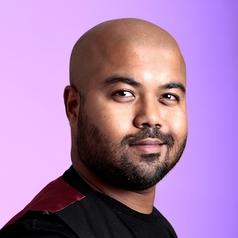
Somdip Dey
Embedded Artificial Intelligence Scientist & AI Music Producer, University of Essex
Somdip Dey, FRSA, also professionally known as InteliDey, is an Embedded Artificial Intelligence scientist, engineer, entrepreneur, AI art & music creator and TED speaker. Dey is the CEO of Nosh Technologies, the CTO of Blockway Technologies, a Lecturer of Computer Science at the University of Essex, and a Lecturer of Data Science at the York St John University. He is also the Danah Zohar Professor of Quantum Philosophy & Professor of Practice (AI/ML) at Woxsen University, India. He has more than 13 years of industrial experience including working for Microsoft and Samsung in developing technological products that are currently used by billions of users in different ways. For contributions to improving society through applications of embedded machine learning Dey is elected a Life Fellow of the Royal Society of Arts, named an MIT Innovator Under 35, an Outstanding Achiever in Education, Science & Innovation at the 2023 India UK Achievers Honours and a 2022 World IP Review Leader.
Dey was born on December 13, 1990, in Kolkata, India. Dey is the only child of a painter mother, Soma Dey, and a commercial artist father, Sudip Dey. He attended South Point High School in Kolkata, India and went to study bachelor's in Computer Science at St. Xavier's College, Kolkata, where he graduated with a first-class degree (2012). After graduating with a Computer Science degree Dey pursued a career of an engineer, a scientist and an entrepreneur. In 2012, Dey invented a digital QR authentication system that was adopted by institutes around the world to stop the generation of fake degree certificates.
In 2013, he moved to the U.K. to pursue a master's study and while pursuing his MSc at the University of Manchester in 2014, his parents had a car accident that made him the family's sole breadwinner. Sending money to his family to support them left Somdip with an empty bank account and he was left to collect food waste from dumpsters. This led him to co-found Codeepy, a start-up committed to co-developing the world's first crowd food-sharing platform, which was made open source. It won the 3Scale API Award at the Koding's 2014 Global Hackathon & inspired entrepreneurs around the world to develop similar solutions.
In 2020, when the pandemic took over the world and people started to overbuy groceries to adapt to the changing shopping schedule, it ran the risk of increased food wastage at home. Dey co-developed an award-winning AI powered food management app - nosh - to help users reduce food waste in the household. In 2021, Dey co-founded Nosh Technologies (nosh tech inc. - US & Nosh Tech Ltd. - UK), which provides the nosh app solution to reduce food waste at home, and he also assumed the role of the CEO & Chief Scientist of the company.
In 2022, Dey co-developed a machine learning based platform to reduce scams and malicious behavior in blockchain projects while empowering on-chain marketing. This led him to cofound Blockway Technologies (Blockway Tech Inc.).
Dey is a member of the technical program committee and reviewer of several top technical conferences on Artificial Intelligence and Electronic Design Automation fields such as AAAI, CVPR, ICCV, ECCV, ASAP, IEEE EdgeCom, IEEE CSCloud, etc. He is also an editor of numerous academic journals.
Less ![]()
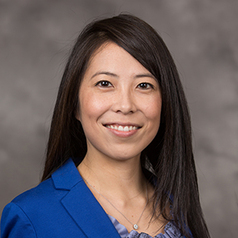
Somin Lee
Assistant Professor of Electrical & Computer Engineering, Biomedical Engineering, Biointerfaces Institute, Applied Physics, Macromolecular Science & Engineering, University of Michigan
Somin Lee is an assistant professor in the Department of Electrical & Computer Engineering at the University of Michigan, Ann Arbor. She holds joint appointments in Biomedical Engineering, Biointerfaces Institute, Macromolecular Science & Engineering, Applied Physics. She received her Ph.D. from the University of California, Berkeley. She is the recipient of the NSF CAREER Award and the AFOSR Young Investigator Award. She is a member of IEEE and SPIE. Her research is in light-matter interactions to image below the diffraction limit and to control nanoscale objects in the fields of nanophotonics, super-resolution and plasmonics.
Less ![]()
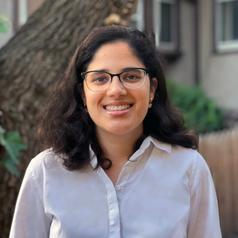
Sona Kumar
Postdoctoral Researcher in the Department of Human Development and Family Science, Purdue University
Dr. Sona Kumar is a postdoctoral scholar at Purdue and her work focuses on the development of STEM learning and motivation in early childhood, investigating how caregivers like parents and teachers can best support children’s early engagement and sense of belonging in STEM.
Less ![]()

Sonal Choudhary
Sonal Choudhary, MD is a dermatology trained Dermatopathologist, who joined the Department of Dermatology in 2015 upon completion of her Dermatopathology Fellowship at the University of Pittsburgh.
Dr. Choudhary received her undergraduate degree and medical degree from Vardhman Mahavir Medical College in New Delhi India. She completed a post-doctoral research fellowship at the University of Miami, where she remained to complete her Preliminary Internship in Internal Medicine, as well as her Residency Program in Dermatology.
Less ![]()
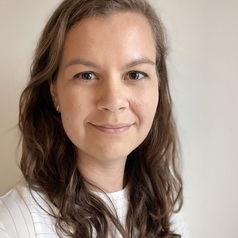
Sonali Campion
Doctoral Researcher in Politics, University of East Anglia
Sonali holds a BA (Hons) in history from the University of Oxford, and an MSc in comparative politics from the London School of Economics. Her PhD research at the University of East Anglia is funded by an ESRC SeNSS studentship and explores the concept of capacity in the context of election management bodies.
Sonali previously worked in international electoral assistance and has supported observation missions and training in Africa, Asia, the Caribbean, Europe and the Pacific. She is an affiliated researcher with the Electoral Integrity Project, and in summer 2023 was a visiting scholar at International IDEA in Stockholm, Sweden.
Less ![]()

Sonali Das
Full Professor, University of Pretoria
Prof Sonali Das holds a PhD in Statistics (University of Connecticut, USA), and is a Full Professor in the Department of Business Management, University of Pretoria. She is a C-rated SA NRF researcher, and an Elected Member of the International Statistical Institute. In 2020 Prof Das was the recipient of the Mujeres Por Africa (MxA) award from Spain to pursue collaboration with Spanish Universities. In 2018 she was the Chair of the Women in Science Without Borders conference. Her work is transdisciplinary in nature where her interest lies in deciphering the underlying data generating process to answer relevant questions. She publishes widely, and supervises a group of motivated post graduate and doctoral students.
Less ![]()
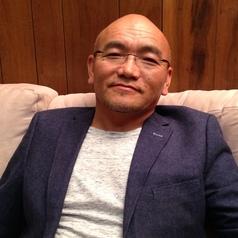
Sonam Thakchoe
Senior Philosophy Lecturer, University of Tasmania
I hold a PhD in Indo-Tibetan Buddhist philosophy from the University of Tasmania (2003), Masters's Degree (Acharya) in Advanced History, Philosophy and Hermeneutics in Indo-Tibetan Buddhism with a double major from the Central Institute of Higher Tibetan Studies (CIHTS, 1998) and a Bachelors Degree (Shastri, 1996). I am one of the very few Australasian scholars in the field—and, indeed, the only Asian-born philosopher with significant experience in an in-depth study of Indo-Tibetan philosophy in close collaboration with Western colleagues. I am making significant contributions to research in this field at the University of Tasmania, and my work has received international recognition. I am the key person in the Philosophy Program at the University of Tasmania responsible for research activities on the topics of Asian philosophy, particularly Buddhist philosophy. I am one of a small coterie of researchers in the field of Buddhist philosophical studies in Australia, and my research activities have significantly contributed to the internationalisation of the research culture of the School of Humanities at UTAS. Previously dominated by the Western Continental and Analytic philosophical traditions, the style of thinking and research focus in the School has now transformed into a significantly more expansive cross-cultural, interdisciplinary philosophical exchange by way of integrating the philosophical methods of Asian, comparative and intercultural thought.
Less ![]()

Song Shi
Associate Professor School of Built Environment, University of Technology Sydney
Song received his Bachelor of Civil Engineering degree in 1991 from Southeast University, China and completed his PhD in Property Studies in 2009 from Massey University, New Zealand. His PhD thesis has been included in the Dean's List of Exceptional Doctoral Theses.
In 2011, Song won the prestigious national Property Institute of New Zealand Academic Award. In 2013, Song was invited to Tsinghua University, China for a scholar visit of 3 months. In 2017, Song left school of economics and finance at Massey University and joined UTS in the school of built environment. He teaches property finance, investment and financial analysis subjects at UTS.
Song has widely published his research work in top academic journals, including Journal of Banking and Finance, Pacific-Basin Finance Journal, Urban Studies, Cities, Housing Studies, Journal of Regional Science, Regional Science and Urban Economics, Journal of Real Estate Finance and Economics, Journal of Housing Economics, Journal of Real Estate Research, International Journal of Strategic Property Management, Journal of Property Research, Journal of Property Investment and Finance, and Journal of Real Estate Portfolio Management.
He is the board director of Global Chinese Real Estate Congress and currently on the editorial board of Pacific Rim Property Research Journal and International Journal of Housing Markets and Analysis.
Less ![]()
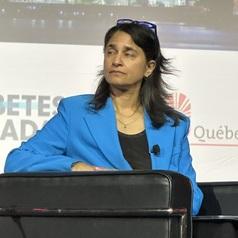
Sonia Anand
Associate Vice-President Global Health, McMaster University
Dr. Anand is Professor of Medicine and Epidemiology, and a vascular medicine specialist at Hamilton Health Sciences in Canada. She holds the Canada Research Chair in Ethnic Diversity and Cardiovascular Disease, and is the Heart and Stroke Foundation of Ontario/Michael G DeGroote Chair in Population Health Research. Dr. Anand is a senior scientist at the Population Health Research Institute. Her present research focuses on the environmental and genetic determinants of vascular disease in populations of varying ancestral origin, and women and cardiovascular disease.
Less ![]()
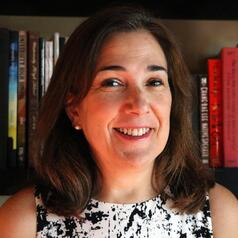
Sonia Colina
Professor of Spanish and Portuguese, University of Arizona
Dr. Sonia Colina's areas of expertise are Spanish phonology (Optimality Theory, syllable structure) and Translation Studies (translation in language teaching, translation pedagogy, translation quality and translation in health care and research). She is the author of Fundamentals of Translation (Cambridge University Press, 2015), Syllable Structure in Spanish (Georgetown University Press, 2009), Translation Teaching: From Research to the Classroom (McGraw-Hill, 2003), the co-editor of The Handbook of Spanish Phonology, Fonología generativa contemporánea de la lengua española, Optimality-Theoretic Studies in Spanish Phonology, and Romance Linguistics 2009: Selected Proceedings of the 39th LSRL, and the author of numerous book chapters and articles in refereed journals. In addition to her publications, Professor Colina has served as an investigator and consultant for the Robert Wood Johnson foundation (Hablamos Juntos program) and as research team member in the UA’s NIH funded-project Oyendo Bien (Hearing Well) (with faculty from Speech and Hearing and Public Health) which used the Community Health Worker model to improve access to care by limited English proficient populations with chronic hearing loss on the Arizona-Mexico border. She was responsible for the translation/language mediation aspect of the grant. She was also a Co-Investigator on another NIH grant with the UA’s Department of Management of Information Systems on Spanish/English automatic text simplification. Sonia Colina is regular faculty in the Second Language Acquisition and Teaching program and is affiliated with the Department of Speech, Language and Hearing Sciences (College of Science). She serves as Director for the UArizona's National Center for Interpretation and is a founding member and Past President of the American Translation and Interpreting Studies Association (ATISA) (www.atisa.org).
Less ![]()
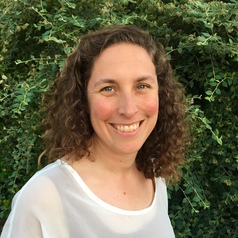
Sonia Graham
DECRA Fellow, University of Wollongong
Dr Graham is a rural, environmental geographer with a mathematical bent. Combining these two skill sets, she uses social science methods and computer modelling to understand how the relationships between individuals and institutions affect the management of natural resources.
Dr Graham has been researching the nature of collective action in weed management for over a decade. Previously she has worked at the University of Melbourne, the University of New South Wales and the Autonomous University of Barcelona. Her other research has investigated the social and equity outcomes of adaptation to sea-level rise.
Less ![]()
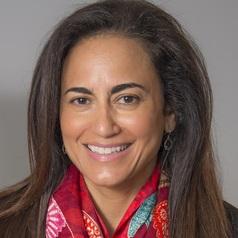
Sonia Hassan
Professor of Obstetrics and Gynecology and Maternal Fetal Medicine, Wayne State University
Dr. Hassan is Associate Vice-President at Wayne State University (WSU), a professor of Obstetrics and Gynecology
and Maternal Fetal Medicine. She has founded and led all research, program administration, staffing and budget
allocation for multiple Women’s Health initiatives and centers throughout WSU and in collaboration with the
National Institutes of Health including: the WSU Office of Women’s Health (2019), WSU COVID-19 in Pregnancy
State of Michigan Collaborative, Make Your Date, an implementation science program to reduce preterm birth, the
leading cause of infant mortality (2014), The WSU Perinatal Initiative (2012) and NIH’s Center for Advanced
Obstetrical Care and Research (2007). In addition, Sonia has extensive policy experience including currently serving
as co-chair of the State of Michigan’s Maternal Infant Health and Equity Collaborative and has several roles
supporting access of medical care to
Less ![]()
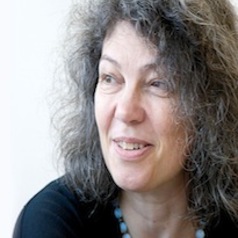
Sonia Livingstone
Sonia Livingstone is a full professor in the Department of Media and Communications at LSE. She teaches master's courses in media and communications theory, methods, and audiences, and supervises doctoral students researching questions of audience, publics and users in the changing media landscape. She is author or editor of eighteen books and many academic articles and chapters. She has been visiting professor at the Universities of Bergen, Copenhagen, Harvard, Illinois, Milan, Paris II, and Stockholm, and is on the editorial board of several leading journals. She is past President of the International Communication Association, ICA. Sonia was awarded the title of Officer of the Order of the British Empire (OBE) in 2014 'for services to children and child internet safety.'
Taking a comparative, critical and contextualised approach, Sonia's research asks why and how the changing conditions of mediation are reshaping everyday practices and possibilities for action, identity and communication rights. Her empirical work examines the opportunities and risks afforded by digital and online technologies, including for children and young people at home and school, for developments in media and digital literacies, and for audiences, publics and the public sphere more generally.
Less ![]()

Sonia Phalatse
Researcher, University of the Witwatersrand
Researcher on feminist economics, climate justice and inequality at the Southern Centre for Inequality Studies.
Less ![]()
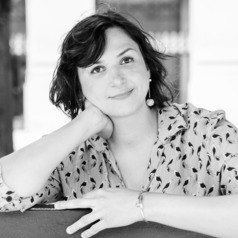

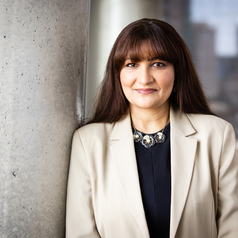
Sonika Singh
Senior lecturer, Marketing, University of Technology Sydney
Sonika is a Senior lecturer at the UTS Business School and currently serves as the Marketing Post Graduate Program Director. She holds a PhD in Management Science from the University of Texas at Dallas. Her research appears in the Journal of Retailing, the Journal of Retailing & Consumer Services, Customer Needs and Solutions, and Higher Education Development and Research. She is the winner of 2020 UTS Learning and Teaching team citation award.
The broad domains of Sonika’s empirical research are Digital Marketing, Marketing Analytics, Retailing and Strategy. She has presented her research at leading marketing conferences in Australia, U.S., Europe and India.
Sonika is very motivated to engage with the broader community to foster social change within and beyond the boundaries of UTS and finds it fulfilling to demonstrate the real impact of her work. Outside of work, Sonika volunteers for Survivor Vision Australia.
Less ![]()
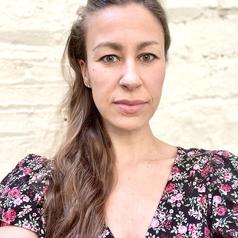
Sonja Ayeb-Karlsson
Associate Professor in Policy and Intersectionality, UCL & Honorary Senior Researcher, United Nations University
Assoc Prof Sonja Ayeb-Karlsson's research is broad and interdisciplinary with a particular focus on policy, intersectionality, and violence, as well as their overlaps with migration, refugees and trapped populations, trafficking or health and mental wellbeing. She is based at the Institute for Risk and Disaster Reduction where she leads the ‘Everyday Disasters and Violences Research Group’ and two modules on humanitarian policy and responses to violence and marginalisation.
Assoc Prof Ayeb-Karlsson is also an Honorary Senior Scientist at the UN University’s Migration Section in Bonn, Germany, she leads the mental health work of the Lancet Countdown, and was part of the ‘Royal College of Psychiatrist’s Climate Emergency and Mental Health Task and Finish Group’. She is a core member of the SHERA research group and on the Hague Mothers UK steering committee. She is an associate editor for and on the editorial boards of four international high impact academic journals. Her work is well-published and widely covered by media outlets across the world.
Currently, she is particularly interested in furthering our understanding of policy protection vs. lack of protection, psychologically ‘trapped’ populations or legal entrapment, and safeguarding through specific legal systems and policy tools (such as Family and Criminal Law, the Human Rights Act, the Istanbul Convention, and the Convention on the Rights of the Child).
Assoc Prof Ayeb-Karlsson is available for PhD supervision in any of these research areas as well as work linked to the study of (im)mobility, gender-based and structural violence, conflict and disasters, non-economic loss and damage and other policy areas focused on the climate-violence-health loss nexus, Violence Against Women and Children (conflict, interpersonal, and domestic), child sexual abuse, exploitation and human trafficking, as well as policy and legal weaponisation or lawfare such as through the use of so-called 'parental alienation' or Hague parental ‘abduction’ proceedings to continue legal abuse and coercive control.
Less ![]()

Sonja Falck
Senior Lecturer, School of Psychology, University of East London
Senior Lecturer and author Dr Sonja Falck is also a psychotherapist and supervisor of therapists. She is Senior Accredited with the BACP (British Association of Counselling and Psychotherapy). In her private practice in north London and internationally online, she specialises in helping adult individuals, couples, and groups communicate more effectively, and build and sustain good friendships, romantic relationships, and family relationships.
Less ![]()
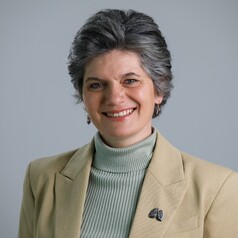
Sonja Klebe
Associare Professor, College of Medicine and Public Health, Flinders University
Associate Professor Sonja Klebe is a senior staff specialist in Diagnostic Pathology at Flinders Medical Centre and a Clinical Academic Associate Professor at Flinders University. She has a special interest in pleuropulmonary pathology and molecular pathology with a focus on mesothelioma and asbestos-related diseases.
Sonja graduated from Medicine at the Free University of Berlin, with a MD in Biochemistry. She completed a PhD in Immunology and Gene Therapy at Flinders University in Adelaide in 2000 and obtained her Fellowship from the Royal Australasian College of Pathologists (RCPA) in 2005.
She is a Member of the International Mesothelioma Panel, the Pulmonary Pathology Society and the International Mesothelioma Interest Group (IMIG) and IASLC staging committee. She is also a member of Lung Expert Group for development of Lung Cancer Structured Reporting Protocol for the RCPA and heads the mesothelioma structured reporting. She is a contributor to the WHO blue books. She regularly serves as an expert on diagnosis in mesothelioma to the courts. She has been an invited speaker for the Australian Society of Cytology Annual Conference, the Australian Lung Cancer Conference, World Lung Cancer Conference and the Australasian Pleuropulmonary Society as well as COSA.
She has successfully supervised 7 honours and 6 PhD students to completion. Her interests have focussed on clinically relevant basic research applications, and her 7-year appointment as Chief Examiner for the RCPA underscores her standing as an expert in pathological processes. She has published 5 book chapters and over 100 peer-reviewed publications.
Less ![]()
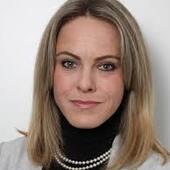

Sonja Petrovic
Assistant Lecturer in Media and Communications, The University of Melbourne
Dr Sonja Petrovic is lecturing and teaching in the Media and Communication program in the School of Culture and Communication at the University of Melbourne. Her academic work focuses on addressing dynamics of communal belonging and public trust in digital spaces and in the context of crisis and disasters. Sonja is currently researching Japanese young women’s self-expression and self-actualisation practices in short-video formats and apps like TikTok; specifically, how this growing platform can accommodate new modes of expression and empowerment for young women through public self-staging, while considering intersecting themes of emotional labour, fandom, and online identities.
Less ![]()
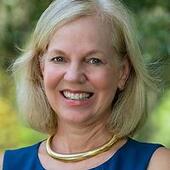

Sonja Utz
Professor of Communication Via Social Media, University of Tübingen
Since March 2022, Sonja Utz has been head of the Everyday Media lab. From April 2013 to March 2022, she led the Junior Research Group, Social Media at the Leibniz-Institut für Wissensmedien (IWM). Since April 2014, she has also been Professor for communication via social media at the University of Tübingen.
Together with her team, she studies the use of social and mobile media for knowledge acquisition and exchange, both in informal (e.g., “How to…” videos on YouTube) and professional settings (e.g., LinkedIn, ResearchGate). In addition, she works on algorithm acceptance and human-machine-communication. Sonja Utz has secured several prestigious grants. She brought an ERC grant to Tübingen and was successful in the Excellence Initiative.
Sonja Utz studied psychology at the Catholic University of Eichstätt from 1991 to 1996, where she also earned her PhD in 1999. Her PhD thesis focused on social identification with virtual communities. Financed by a DFG-grant, she worked as PostDoc at the VU University Amsterdam, Department of Social Psychology. After 2.5 years at the Chemnitz University of Technology, she returned to VU University Amsterdam, this time to the Department of Communication Science. From 2011 to 2013, she also worked part-time as Associate professor for social media and reputation management at NHL Leeuwarden.
Less ![]()
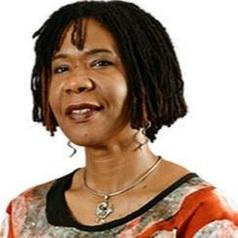
Sonjah Stanley Niaah
Senior Lecturer, Institute of Caribbean Studies and Reggae Studies Unit, The University of the West Indies
Sonjah Stanley Niaah is a Jamaican cultural studies and music scholar, cultural activist and international speaker. She is the first Ph.D. Cultural Studies graduate from the University of the West Indies (UWI), and the first to be appointed Lecturer and Senior Lecturer in Cultural Studies there. The inaugural Rhodes Trust Rex Nettleford Fellow in Cultural Studies (2005), Sonjah Stanley Niaah is a former head of the UWI's Institute of Caribbean Studies & Reggae Studies Unit, and is a leading author, teacher and researcher on Black Atlantic performance geographies, popular culture and the sacred, and Caribbean Cultural Studies more broadly. Stanley Niaah is the author / editor of numerous publications.These include Dancehall: From Slave Ship to Ghetto (University of Ottawa Press, 2010); Dancehall: A Reader on Jamaican Music and Culture (UWI Press, 2020); Dancehall In/Securities: Perspectives on Caribbean Expressive Life (Routledge, 2022); A Study on the Creative Industry as a Pillar of Sustained Growth and Diversification - The Film And Music Sectors In Jamaica, UNECLAC Studies and Perspectives Series - No. 72 (2018); ”I’m Broader than Broadway: Caribbean Perspectives on Producing Celebrity' (Wadabagei, Vol. 12: 2, 2009); and ‘Of Sacred Crossroads: Cultural Studies and the Sacred’ (Open Cultural Studies Vol. 3, No.1, 2019).
Less ![]()

Sonto Madonsela
PhD student, Psychology, University of the Witwatersrand
I am a third-year PhD student in psychology at Wits University and a research assistant at the Health Communication Research Unit. My PhD research focuses on adolescent mental health. My PhD topic, ‘Mhealth services for adolescent mental health: a focus on Soweto’, looks at how technology can be leveraged to provide mental health services to adolescents. My research interests are in health communication, mental health and migration. Before starting my PhD, I worked as a research assistant and sessional lecturer in the School of Human and Community Development at Wits University. I have been involved in collaborative multidisciplinary projects, including research on African migration and health communication in diverse contexts.
Less ![]()
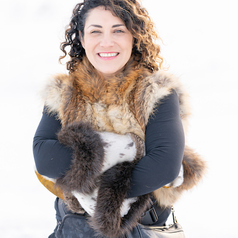
Sonya Graci
Associate Professor, School of Hospitality and Tourism Management, Toronto Metropolitan University
Sonya Graci is an Associate Professor at the Ted Rogers School of Hospitality and
Tourism Management at Toronto Metropolitan University in Toronto, Ontario, Canada.
She is also the Director of the Ted Rogers School of Management Institute for Hospitality and Tourism Research.Dr. Graci’s research focuses on capacity development, collaboration and partnerships,
corporate social responsibility, leadership, resilience and entrepreneurship. She has
lead numerous projects focused on sustainability in destinations such as Honduras, Indonesia, Canada, Fiji and China. Dr. Graci has focused much of her research on Indigenous tourism development with a focus on sustainable livelihoods. Dr. Graci is the author of two books, one which is Sustainable Tourism in
Island Destinations (Graci and Dodds, 2012) and several journal articles and industry
publications. She is also the Director of Accommodating Green, a boutique consultancy
that focuses on developing sustainability strategies for businesses and destinations.
Less ![]()
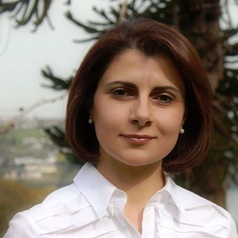
Sonya Hanna
Lecturer in Marketing, Bangor University
Graduate of Bangor University, completed a PhD in Place Branding. I sit on the management board for the 'Places of Climate Change' (PloCC) Research Centre at the University, am an editorial board member for the Journal of Place Management and Development, and a member of the scientific committee for the International Place Branding Association (IPBA). My research is place focused considering aspects of the place branding process from various perspectives, but more recently looking at sustainability, sustainable tourism, and places and climate change.
Less ![]()

Sonya Kaiser
Dual Masters in Brain and Mind Sciences, Sorbonne Université
Actuellement en train de finir un master en neurosciences à Sorbonne Université, avec un stage en psycholinguistique dans l'équipe de Sharon Peperkamp à l'ENS. J'ai aussi fait un stage de recherche en neuroscience sociale à UCL (Londres).
Less ![]()
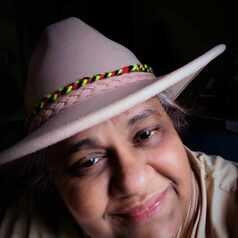
Sonya Takau
Girringun Aboriginal Corporation Communications Officer and Founder of Dingo Culture, Indigenous Knowledge
My name is Sonya Grant Takau a proud Jirrbal Rainforest Aboriginal woman from Tully, Queensland. My greatest mentor in life has been my father Dr Ernie Grant (Jirrbal Elder). I have worked mostly in the Tourism and Education industries and within these roles have met some amazing people nationally and internationally.
I'm currently working for Girringun Aboriginal Corporation located in Cardwell, Queensland as Communications Officer. I love my role as I get to work with my Elders and Traditional Owners and assist with their aspirations for caring for their traditional lands and seas.
Recently I created/founded Dingo Culture. Dingo Culture is a digital platform which is focused on collating cultural information from other Aboriginal groups and articles from across Australia and sharing their cultural perspective of the Dingo.
I am currently working with some amazing people in campaigning for legislative changes here in Queensland and other states to give our Dingo the protection it needs as our Land Apex Predator and the role it plays in balancing our natural environments (invasive species). Please reach out to me for a chat, I welcome your views.
Less ![]()
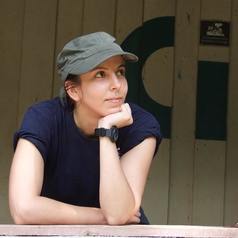
Sophia Daoudi
PhD candidate in Primate Behaviour, University of Stirling
Sophia Daoudi is a member of the Behaviour and Evolution Research Group Stirling and the Scottish Primate Research Group. Before starting her PhD she undertook an MSc in Primate Conservation at Oxford Brookes University, where she spent 3 months in the Peruvian Andes studying the Critically Endangered yellow-tailed woolly monkey as part of her dissertation research. She is currently a teaching assistant on the psychology undergraduate animal behaviour modules, as well as module coordinator for the INTO Stirling introduction to psychology course. Her current research focuses on the behaviour of tufted capuchins and squirrel monkeys in both captive and wild environments. In particular she investigates polyspecific associations between the two.
Less ![]()
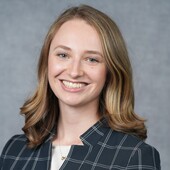
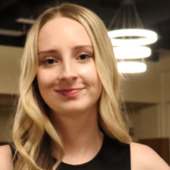
Sophia Lindstrom
Research Assistant, Criminal Justice and Public Policy, University of Guelph
Less ![]()
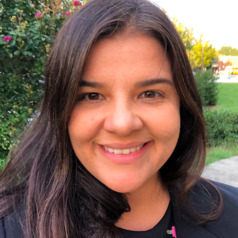
Sophia Rodriguez
Assistant Professor of Urban Education and Policy, University of Maryland
Dr. Sophia Rodriguez's award winning research relates to racial equity in urban education and policy. Recently, her work sheds light on the experiences of Latino immigrant youth and families, and how schools and school personnel can increase belonging, inclusion, and promote equity. She is also a William T. Grant Scholar and has been honored by the American Educational Research Association.
Less ![]()
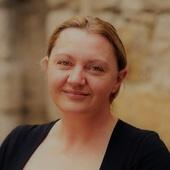
- Market Data























